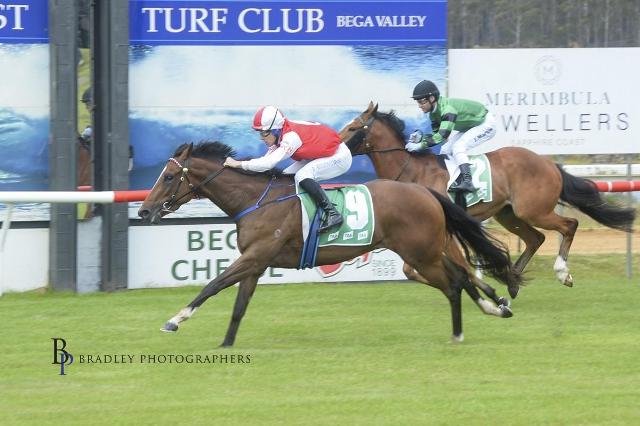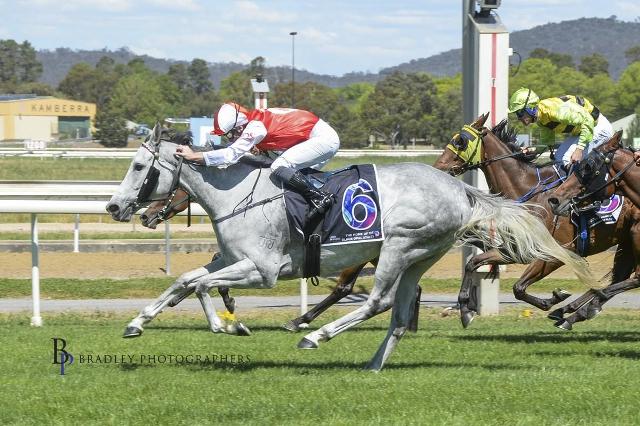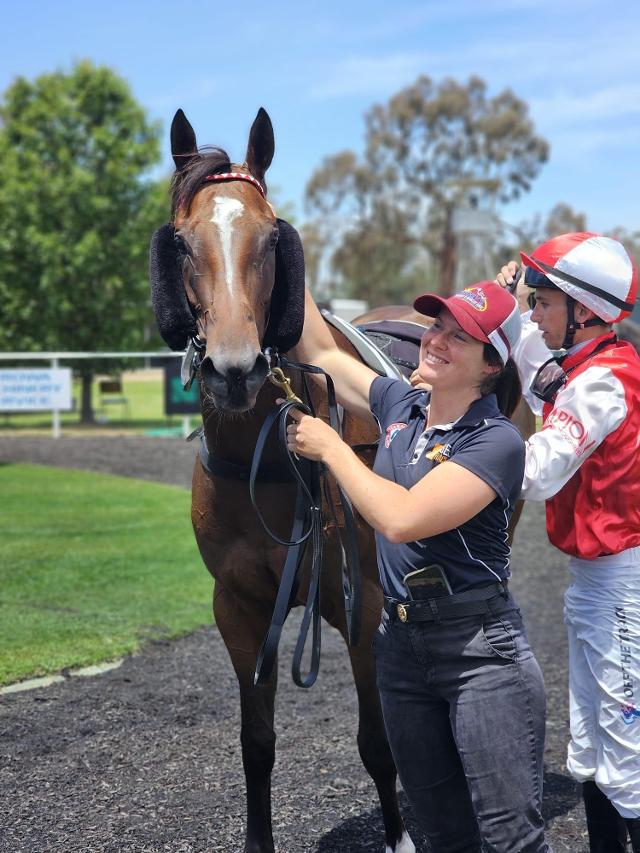Champion Thoroughbreds | Champion Thoroughbreds Pageaction Viewrace Racecode 5221210
Who We Are
Champion Thoroughbreds has been syndicating racehorses in Sydney since 2009. Boutique in size, Champion focuses on an excellent ownership experience with a commitment to outstanding communication, social events and winning results. Join the Champion family and enjoy the thrill of racehorse ownership with a dedicated and experienced team!

SINCE 2009
12+ Years experience in syndication, making Champion one of the more established syndicators in NSW.

OWNERSHIP EXPERIENCE
We pride ourselves on excellent owner communication and regular events including Open Days, Cocktail Parties + much more.

WINNING RESULTS
We've celebrated success at the highest level with multiple Group 1 winners and countless stakes wins.
Stable News

Voltage Lass Provides Electric Performance On Debut
Dec 4, 2025Too Darn Hot filly Voltage Lass stamped herself as a talent on the rise with a sharp debut victory at the Sapphire Coast on Monday. The three-year-old, prepared by in-form conditioner Danielle Seib, arrived for the 1000m assignment off two tidy jump outs and looked every inch a professional in her race-day introduction. Ridden by the state’s premiership-leading jockey Pierre Boudvillain, Voltage Lass jumped on terms and landed in a stalking position behind a genuine early speed. Angling off the heels of Reveillion on the home bend, she was forced to pick herself up again at the 200m when Dawn On Me shifted out abruptly, hampering her momentum. But the filly responded with purpose, lengthening late to score by a decisive length. “She was very professional today and she’ll only improve off that,” Seib said post-race. “There’s plenty of upside for her owners, so it’s exciting.” A $50,000 Magic Millions purchase from the Coolmore draft, Voltage Lass is out of the speedy Hinchinbrook mare Countercurrent, herself a two-time winner and already the dam of two winners from as many runners. She is by Darley’s headline stallion Too Darn Hot, who commanded a $275,000 service fee this season. The win continues a hot run for Seib, who is operating at an impressive 31.2% strike-rate in country races and sits fifth on the premiership ladder.

Well Done, Sir Loyne
Oct 30, 2025Progressive three-year-old Sir Loyne was perfectly seasoned ahead of his third career start at Wyong on Thursday — and he certainly served up a performance to savour. The Peltzer (So You Think) gelding was the first winner for the Michael Freedman and Champion Thoroughbreds duo, and the way he won suggested there’s plenty more sizzle to come. After showing promise in a nice debut effort earlier this month — finishing fifth in a hot midweek maiden behind subsequent Group winner Shangri La Boy and Victoria Derby contender Providence — Sir Loyne marinated nicely from that run to post a strong second at Hawkesbury over 1600m. On that occasion he ran into the prime cut of the field in $1.5 million Dundeel colt Columbus, but at Wyong on Thursday Sir Loyne finally got his chance to carve up the competition in the 1625m maiden. Sent out a short-priced favourite under Regan Bayliss, the gelding jumped straight to the lead and never looked in doubt, posting an impressive 3.6 length win. Stable representative Sophie Johnson said the stable was delighted with what Sir Loyne served up. “He’s taken a bit of time to mature and find his feet, but he really put it all together today,” Johnson said.“He pricked his ears to the line, and it was great to get that first winner for Champion Thoroughbreds — it certainly hit the spot.” An $80,000 Magic Millions purchase from Twin Hills Stud, Sir Loyne is a half-brother to Group III winner Vagrant and is the fourth winner from four foals to race from My Obsession — a metro-winning Lonhro mare from the family of Group I winner Ugo Foscolo. My Obsession has proven a prime producer for Twin Hills, who snapped her up for $110,000 at the 2018 Magic Millions National Broodmare Sale. Sir Loyne is also the fifth winner for Twin Hills Stud’s young So You Think stallion Peltzer, whose growing list of top cuts includes stakes-winner Buccleuch and G3-placed Thanks Gorgeous. If Thursday’s win is any indication, Sir Loyne could be a stakes for for the future.

Ziggy Showcases Staying Potential With Canberra Win
Oct 29, 2025Stepping up to 2000 metres for the first time proved no obstacle for striking grey mare Ziggy Rose, who produced a tenacious performance to score at Canberra on Friday. The four year old daughter of D'Argento showed both stamina and grit to claim the Maiden/Class 1 Plate (2000m), storming home from last in a stirring finish to notch her maiden victory. Having her fourth run this preparation, Ziggy Rose was sent out on the third line of betting in the nine-horse field. After beginning a touch awkwardly, she was allowed to find her rhythm at the rear, travelling kindly off a genuine tempo. Regular rider Shaun Guymer — aboard for all of her runs this campaign — elected to track the heavily supported favourite Little Lunch (John Sargent) into the race, but when that runner failed to quicken on the turn, Guymer was forced to chart a wide course. Despite covering extra ground, Ziggy Rose let down powerfully in the straight, sustaining a long run to nail Liyah’s Girl (Matthew Smith) right on the line in a determined last-to-first effort. “She had to do it the hard way today,” Guymer said post-race. “The favourite didn’t take us into it like I’d hoped, but she was tough and really found the line. She’s an exciting staying prospect.” Trainer Danielle Seib was equally pleased with the breakthrough win. “It was great to see her tick the 2000-metre box today,” Seib said. “That opens up a lot of options for her going forward.” By D’Argento — the Group 1 Rosehill Guineas winner and son of the great So You Think — Ziggy Rose hails from Zoffany Rose, a three-time winner over staying trips (2200–2400m). Pedigree and performance alike suggest she’s only now beginning to hit her straps over ground. Congratulations to her winning ownership group: Mr S Aitken, Wegotenuff Syndicate, Mr T Corby, Mr P G McGrath, Ms R Sloan, Mr G Seto, Mr K J Thurkettle, Mr P G Zaninovich, Mr R N Morison and Mr N A Ethell.






